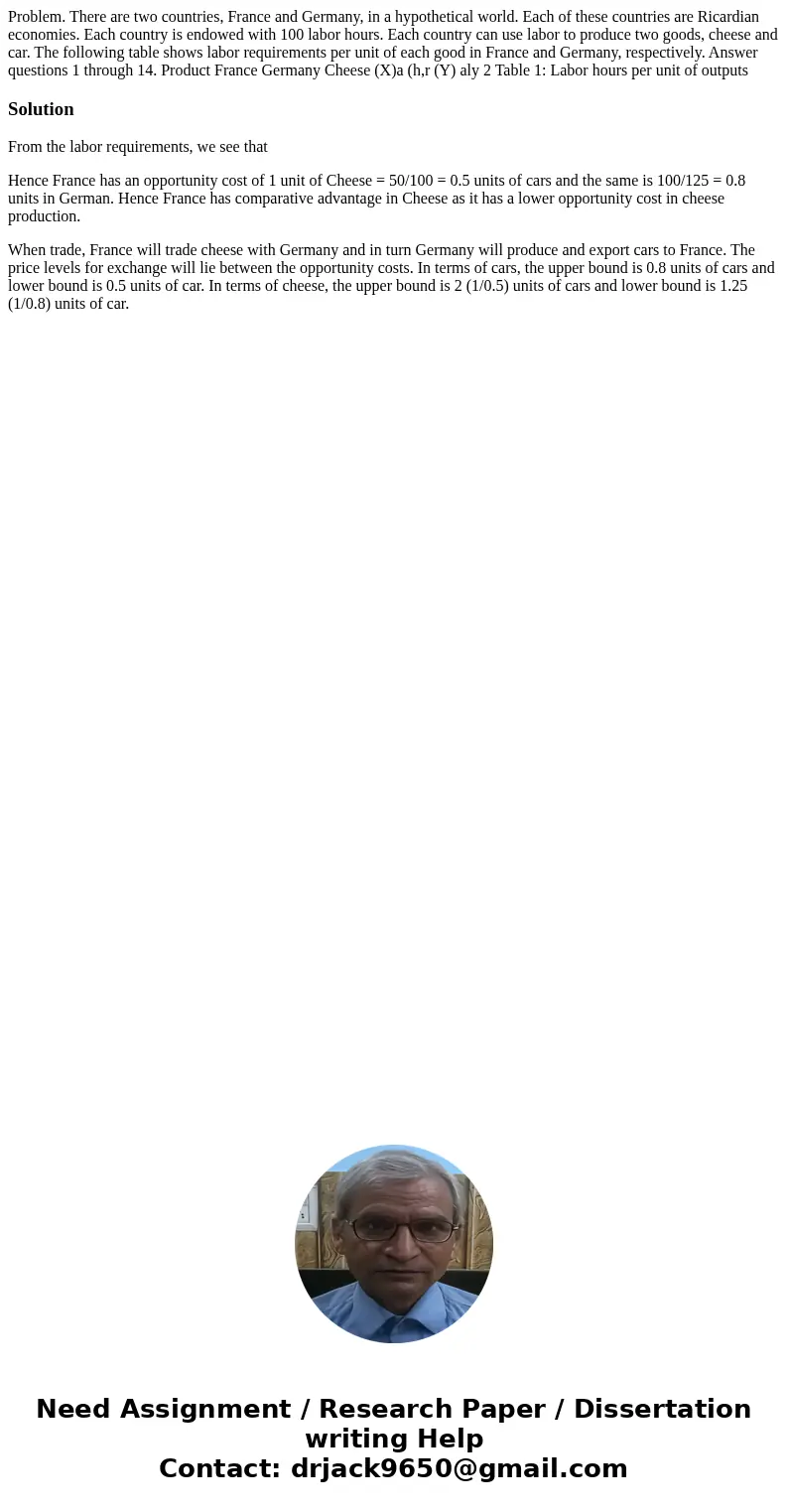Problem There are two countries France and Germany in a hypo
Problem. There are two countries, France and Germany, in a hypothetical world. Each of these countries are Ricardian economies. Each country is endowed with 100 labor hours. Each country can use labor to produce two goods, cheese and car. The following table shows labor requirements per unit of each good in France and Germany, respectively. Answer questions 1 through 14. Product France Germany Cheese (X)a (h,r (Y) aly 2 Table 1: Labor hours per unit of outputs 
Solution
From the labor requirements, we see that
Hence France has an opportunity cost of 1 unit of Cheese = 50/100 = 0.5 units of cars and the same is 100/125 = 0.8 units in German. Hence France has comparative advantage in Cheese as it has a lower opportunity cost in cheese production.
When trade, France will trade cheese with Germany and in turn Germany will produce and export cars to France. The price levels for exchange will lie between the opportunity costs. In terms of cars, the upper bound is 0.8 units of cars and lower bound is 0.5 units of car. In terms of cheese, the upper bound is 2 (1/0.5) units of cars and lower bound is 1.25 (1/0.8) units of car.

 Homework Sourse
Homework Sourse